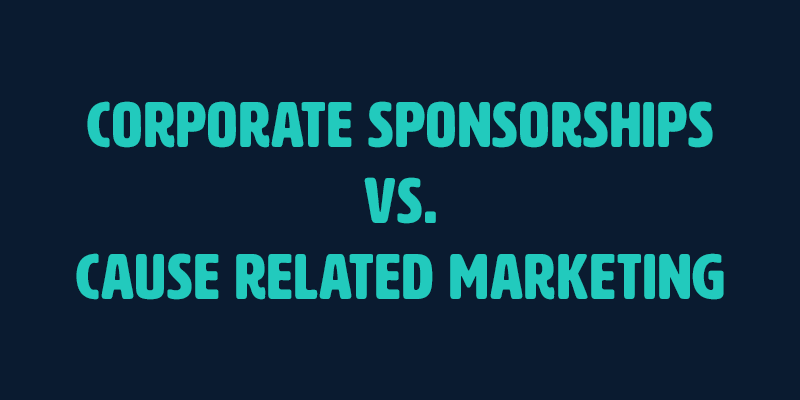A sharp drop in philanthropic giving is affecting the nation’s nonprofits, and inflation is one of many factors contributing to the decline. As the need for charitable contributions grows, many bars and restaurants are emerging as proactive allies in the effort to combat this shift.
Establishments across the nation are taking a community-driven approach to addressing the issue by offering promotions that benefit charities, especially during the holiday season. While this approach can be a powerful force for good, bars and restaurants must navigate certain legal and regulatory considerations to ensure they are not inadvertently breaking the law.

Many states and jurisdictions have stringent charitable giving and fundraising regulations in place to protect donors, charities and the public interest. Another Round Another Rally’s Travis Nass recently sat down with Attorney John B. Reyna, of the Texas Hospitality and Nonprofit Law Center, to discuss what bars and restaurants can do to give back this holiday season while staying on the right side of the law.
Before launching any charitable efforts, John says, a hospitality business needs to understand the difference between “corporate sponsorships” and “cause-related marketing efforts,” which some states refer to as “commercial co-ventures.”

Businesses that want to show goodwill by supporting a particular cause through a straight donation are “corporate sponsors,” while businesses that want to show goodwill while simultaneously generating money for themselves through the sales of goods and services fall into the latter category. This is important, John says, because there are more rules and regulations involved in cause-related marketing efforts and commercial co-ventures than there are corporate sponsorships – and because those rules and regulations can vary greatly from one state to the next.
For example, John has seen many businesses get into trouble by not being transparent about the full details of their cause-related marketing efforts. It’s not uncommon for a business to launch a promotion that benefits a particular charity only to note that a “portion of the proceeds” from sales will go toward the designated cause.
This is troublingly vague, though, and as such, it has the potential to violate consumer protection and other state laws and land a business in serious hot water. Because consumers “buy with their hearts,” John asserts, it’s vital that they have a comprehensive understanding of how their particular purchase is going to help the nonprofit benefiting from it. Otherwise, why would they buy that particular product or service, as opposed to others that are also available?

Avoiding costly legal trouble involves making full disclosures about a promotion, who it helps and when it happens. While part of this involves dictating exactly how much of a particular sale goes to charity (i.e. $1 per drink, etc.), it’s also important that businesses cover other bases, such as how long the promotion will last.
Some businesses make claims that they will run the promotion until they’ve donated a certain amount to the cause. However, this can cause problems and mislead consumers if the business fails to disclose when it hits that mark and allows the promotion to continue despite doing so.
“It’s fine to have a cap,” John noted, “But you need to provide more info.”
For example, if the promo ends on a specific date, state as much. If a business plans to make a minimum donation, regardless of the success of the fundraiser, it’s important that the business be clear about it – and make that minimum amount an achievable figure.
John recommends imagining a stranger walking into a bar or restaurant who knows nothing about the promotion taking place. Does that stranger have enough information at hand to make an informed decision about whether to participate?
“Disclosures need to be clear,” John said. “If not, you need to either shut the promotion down or change the language.”
Other ways bar and restaurant businesses can avoid legal trouble when conducting fundraisers or promotions is by doing their homework with regard to state laws. Each state is different in terms of how they allow businesses to conduct fundraisers. Some states require businesses raising money for charity to have contracts in place, or to register with the state. Some also have special rules and guidelines when it comes to accounting and recordkeeping.
In some cases, charities who benefit from holiday fundraisers and similar efforts are “soliciting funds” in the eyes of their state and therefore must have certain legal documents in place that enable them to do so.
“Charities may need to educate the bars and restaurants they work with about nonprofit tax laws, too,” John said. While holding nonprofit status eliminates some of an organization’s tax burden, it may not completely absolve the business from having to pay certain taxes.
For example, if the IRS thinks a certain promotional effort constitutes “advertising,” as opposed to “acknowledgement,” the charity may face an Unrelated Business Income Tax, or UBIT. While tax complications can arise from charitable promotions, John notes that most of the problems he sees stem from a business failing to make proper disclosures about the promotion in the first place.
“Disclosures are where the issues often arise,” he said. “We live in a litigious world, and you’re going to come across a consumer who feels misled. We want to minimize that as much as possible.”

While the rules governing bar and restaurant charitable promotions may seem daunting, John encourages hospitality businesses to move forward in their efforts to raise money for charity this giving season. By working closely with the nonprofit and researching the specific rules in place in a particular state, hospitality businesses can give back safely, support causes near and dear to their hearts and position themselves as selfless, altruistic community partners.
“We want bars and restaurants to conduct these charitable sales and promotions. It benefits the charities, and a lot of charities are struggling to raise funds right now.” John said. “People just don’t always know all the rules, and that’s where they run afoul of them.”


